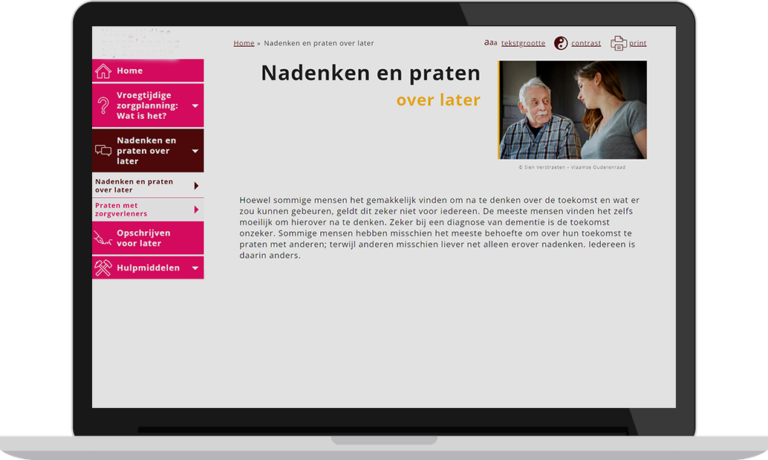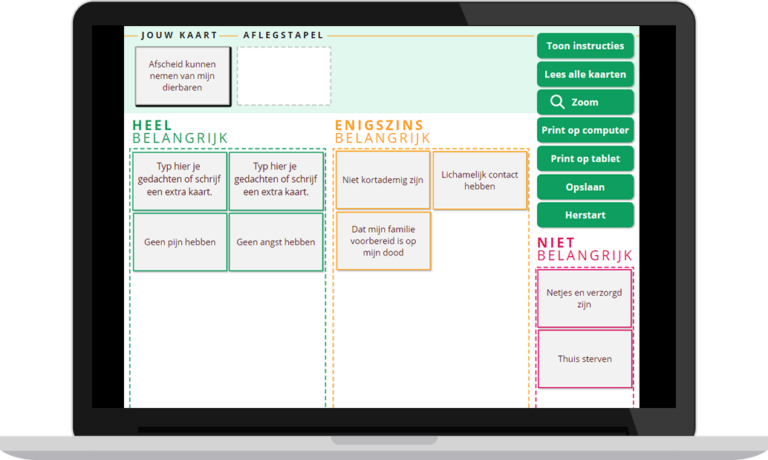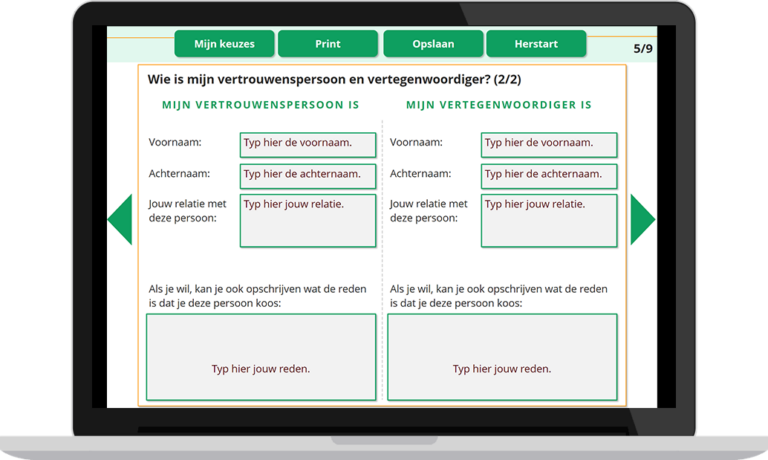Website for people with dementia and their caregivers:
ADVANCED CARE PLANNING
Accessible and interactive website for people with dementia (and their family), aimed at helping them talk about decisions regarding their future care.
To inform people with dementia and their caregivers about their disease and decisions they can make around their future care, we created an accessible and interactive website. This website was developed in cooperation with VUB (End-of-Life Care Research Group) and experts in the field. From the briefing of the client to the final website for performing a clinical trial, development took 1,5 year (including 5+ feedback rounds with the client, experts in the field and end-users).



Decisions in future care
The objective of this website:
Educate people with dementia and their family about their disease.
Help people with dementia talk about decisions around their future care.
accessibility-focused
Co-created with experts in the field: clinicians, people with dementia and researchers.
Accessibility focused: ability to enlarge text size, improve contrast and easily navigate.
Iterative development process (sprints) to enhance efficiency and return on investment (ROI).
interactive website and tools
Interactive website and tools which empower decision making, reflective thinking and capture choices of people with dementia to facilitate talking about decisions for future care.
Well-received by people with dementia and their caregivers.
Randomized clinical trial (RCT) results expected Q2’24.

